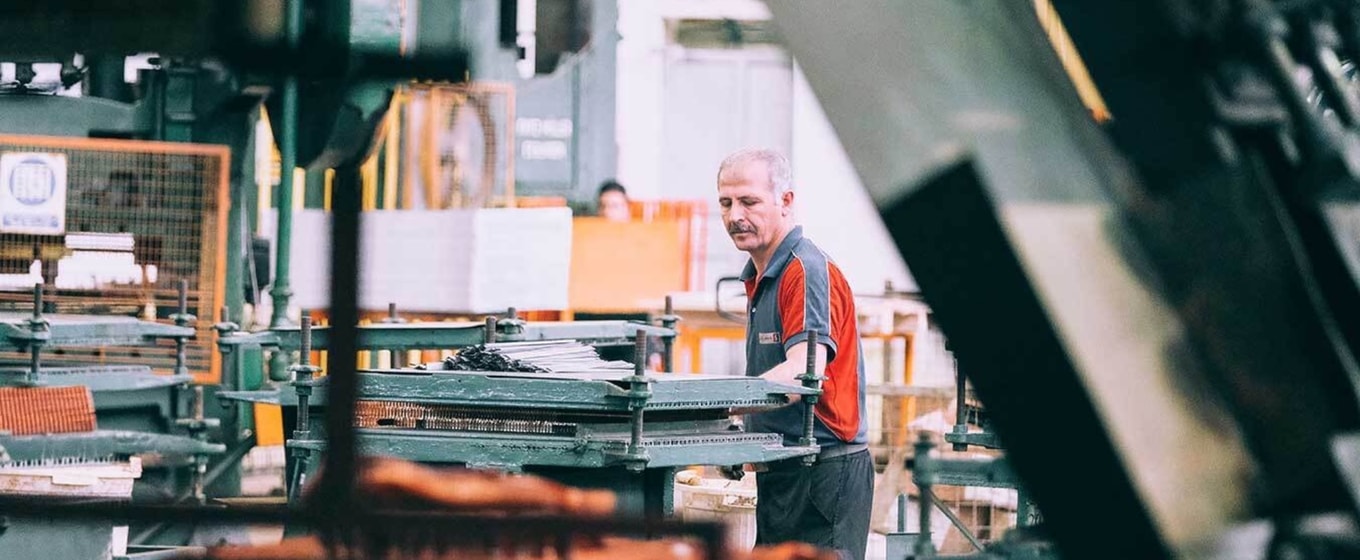The impact of the COVID-19 pandemic is being felt by businesses across all industries, and the manufacturing sector is no exception. While the UK manufacturing industry is expected to grow by 7.8% in 2021, the global industry is still facing challenges related to supply chain disruption, changes in demand, and skills shortages.
To combat the impact of the pandemic, the manufacturing industry accelerated its digital transformations, with many harnessing the power of Artificial Intelligence (AI). AI’s ability to intelligently automate operations has enabled businesses to maximize efficiency and analyze data in volumes that weren't possible before its adoption.
Based on my experience in supporting AI deployments for global manufacturers, here are some key ways in which the manufacturing industry can leverage AI:
Improving visibility through AI and blockchain
AI and blockchain have both individually helped to create more efficiency within supply chains. However, a combination of the two creates the perfect environment for successfully managing a manufacturing firm’s assets. For example, by introducing autonomy to supply chain processes and optimizing the use of resources, a business can improve its Environmental, Social and Governance (ESG) metrics.
Blockchain is slowly building momentum with an adoption rate of 12% within the industry globally. Blockchain-powered solutions can seamlessly aggregate data by offering a permanent digital record of an organization's parts and products. And thanks to its distributed ledger, it can provide insights throughout the entire supply chain.
To unlock its full potential, manufactures can use AI technology to analyze these vast amounts of data in real-time. This provides crucial insight that can help to streamline a business' asset management.
Leveraging AI and IoT to achieve goals
ESG metrics are becoming critical decision-making criteria for businesses. Furthermore, the manufacturing industry is under growing commercial, public, and governmental pressure to make green supply chains. Fortunately, combining technologies such as AI and IoT (Internet of Things) can assist manufacturers in progressing towards a more sustainable future.
For example, data can be collected about the materials used on the factory floor to determine whether they were responsibly sourced. Businesses can do this by using sensors to track the flow of a certain piece of material through the supply chain. AI’s data-analyzing capabilities can then determine how much material was used. In doing so, organizations can accurately calculate how much material is needed and reduce waste. With access to this data in real-time, businesses can ensure their supply chain processes align with ESG standards.
Transforming processes through AR and AI
Businesses can significantly improve their use of Augmented Reality (AR) through the integration of AI technologies. Alone, AR can provide crucial insights that are driven by machine learning on the factory floor. With AI's ability to analyze large volumes of data in real-time, businesses can quickly identify faulty products and areas of operation that need improvement. These reports can then be processed by powerful algorithms and shared within an organization to enable informed decision-making.
There are many benefits associated with AR and AI being used in combination, including:
Product development
The use of AR in the early stages of product development can help manufacturers materialize their designs virtually. This allows them to identify potential issues and solve them before spending any money on a prototype.
Machine maintenance
AR can cut down on manual machine maintenance through real-time daily monitoring. It can also help to predict potential failure trends for faster repair and recovery.
Logistics
Through interactive voice-over, AR can help streamline cargo picking for loaders by providing information on where it must be placed in a vehicle.
Creating efficient back-office processes
AI and other emerging technologies can also play a significant role in enabling efficiency in back-office processes.
Take the vendor selection process as an example. Assessing individual vendors requires manual evaluation of unstructured data, making it a time-consuming task. However, adopting AI-based deep knowledge and text engineering tools can help companies speed up this process by selecting specific parameters. Alongside other data exploration tools, information about new suppliers can be automatically explored and analyzed.
Innovative technologies such as AI, blockchain, and IoT all offer individual advantages to the manufacturing industry. They can help to automate, streamline and create visibility across the supply chain. When working in collaboration, and especially when integrated into a single platform, their benefits are transformative. As Covid-19 restrictions begin to ease, manufacturers who incorporate these latest technologies into their business strategy will reap the rewards.
About the Author
Jinender Jain is the Head of Sales of Tech Mahindra UK & Ireland. He is an accomplished sales leader, expert in Digital Transformation and Solutions, with an outstanding record in securing major multinational accounts, ideating services and achieving exponential high margin revenue growth.








These cookies are set by a range of social media services that we have added to the site to enable you to share our content with your friends and networks. They are capable of tracking your browser across other sites and building up a profile of your interests. This may impact the content and messages you see on other websites you visit.
If you do not allow these cookies you may not be able to use or see these sharing tools.